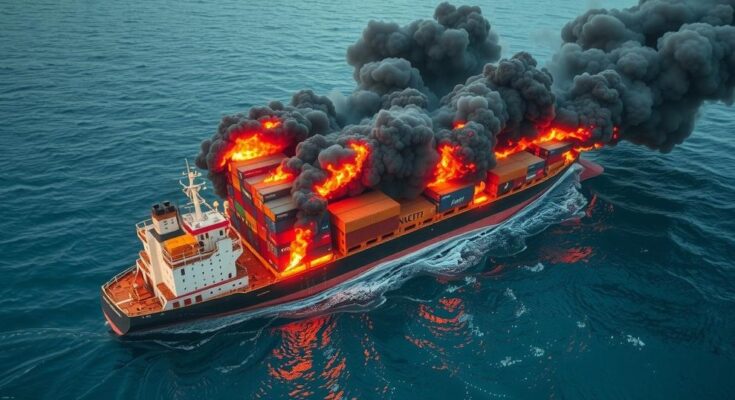Mozambique is experiencing escalating political unrest, severely affecting port operations and hindering regional trade, particularly through the Port of Maputo. This unrest has resulted in significant delays and losses for the Mozambican government, while the country’s fragile governance threatens substantial foreign investments, especially in the energy sector. The situation also raises concerns about maritime security in the Mozambique Channel, a key shipping route amid global economic challenges.
The political unrest in Mozambique has escalated, posing significant risks to the country’s port investments and regional trade networks. Following the onset of post-election violence in October, protests have severely hampered operations at the Port of Maputo. As reported by Grindrod, operations at the port have faced substantial disruptions, leading to delays for 24 vessels and cancellations due to stock shortages. The situation has compelled Grindrod to remark on the likely impact of these delays extending into the new year, with the fourth quarter suffering the most significant fall in cargo volumes. The continual challenges have led to a reported loss of $54 million for the Mozambican government as a direct consequence of these operational hurdles.
Mozambique’s political instability not only jeopardizes its local economy but also threatens its broader potential as a resource-rich nation in Sub-Saharan Africa. The discovery of large natural gas reserves has attracted over $60 billion in investments from global energy firms; nevertheless, an ongoing insurgency in northern regions has stalled various energy projects, including a critical port used for gas sector operations. The capture of the Mocimboa da Praia port by Islamist militants in 2020 underscores the vulnerabilities present in the area, exacerbated by a fragile governance structure that hinders effective resolution of regional conflicts.
Furthermore, the unrest has significant implications for regional maritime security, particularly regarding the Mozambique Channel, a vital shipping route. As vessels divert from the Suez Canal, the channel’s importance grows, especially in light of its substantial hydrocarbon reserves. The Rovuma Basin, located in this area, is estimated to contain over 100 trillion cubic feet of recoverable natural gas, necessitating stability in Mozambique to protect these valuable maritime interests. Thus, ensuring political stability in Mozambique is imperative not only for its own economy but for regional trade and security.
The political situation in Mozambique has become markedly destabilizing, having arisen from post-election violence, leading to significant disruptions at major ports. The Port of Maputo plays a vital role for exports, particularly in minerals such as chrome and titanium and coal. Historical developments, including the discovery of vast natural gas reserves, have garnered global interest, translating into extensive foreign investments. However, the rise of insurgency in the northern provinces poses a direct threat to development efforts and national security. The geopolitical implications extend beyond Mozambique, impacting regional maritime operations and economic stability.
In summary, the political unrest in Mozambique significantly disrupts port operations, adversely affecting both the local economy and regional trade. The rise of violence, particularly in the context of the insurgency in the north, presents substantial risks to ongoing foreign investments and energy projects vital for the nation’s prosperity. Furthermore, the stability of the Mozambique Channel is crucial for global shipping routes, thereby highlighting the urgent need for effective governance to mitigate these crises and restore confidence within the region.
Original Source: maritime-executive.com




